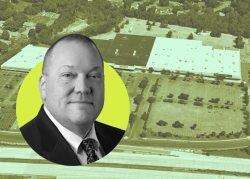Rechler Equity Partners shanked its last attempt at redeveloping a former golf course in Sayville, Long Island. Now it has teed up a revised version, hoping to land it on the fairway.
The firm, run by Gregg and Mitchell Rechler, is pitching a 925-unit complex at 458 Lakeland Avenue, the former site of the Island Hills Golf and Country Club, Newsday reported. Rechler Equity hasn’t filed plans for the proposal as it tries to ameliorate opposition before doing so.
One change it has made from its previous effort is to surround the multifamily units with single-family homes, which are less disliked by Long Islanders who fight new housing. The development would also include a clubhouse, art center and community farm.
The company has a five-person advisory group gathering feedback from the community before officially filing anything.
That appears to be a lesson learned from Rechler Equity’s last round at the 114-acre Sayville site. In 2017, the developer submitted plans for a $500 million project with 1,365 multifamily units. Community opposition exploded and Islip Town rejected the proposal in 2021.
Resistance to the latest plans for the golf course, which has been idle for eight years, is already growing. The Great Islip Association obtained some of the conceptual plans through public records requests and is raising money to stop it. It has expressed concerns about its size and impact on quality of life.
In particular, members of the civic group reject entirely the idea of apartments on the site.
“These are people that live in this community, they have their hearts and souls here, they’re raising their families here,” Milynn Concepcion, president of the group, told Newsday.
She did not elaborate on why that makes apartments unacceptable to her members, but in suburban communities dominated by single-family homes, residents often associate rentals with ghettos, crime, property tax increases, traffic and lower property values.
— Holden Walter-Warner
Read more



